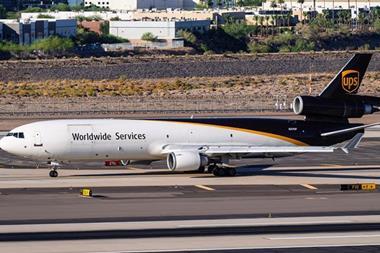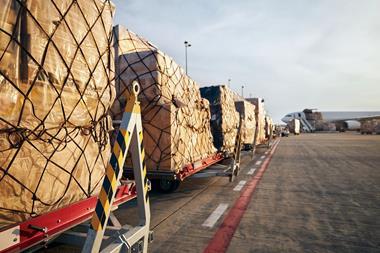
UK supply chain organisation Logistics UK has called on the country's government to appoint a dedicated minister for logistics and supply chain.
Logistics UK said the position would help drive future economic growth across the whole economy.
The call was made as part of the organisation's election manifesto, issued as UK political parties prepare for the country's general election taking place later this year.
“Whether manufacturing or retail, healthcare or education, every part of our economy relies upon logistics to provide all the goods needed to generate business and growth,” said chief executive David Wells.
“Innovative, integrated infrastructure backed by a national logistics network will deliver efficiencies and opportunities that can benefit us all.
"Giving logistics a voice at the heart of government would ensure that the needs of industry and business are heard, and that our sector can work with government to drive up the country’s productivity."
The manifesto was launched alongside a survey commissioned by Logistics UK that showed fewer than a third of 2,000 adults think the government is doing enough to support the transport sector.
The survey also showed that four in five adults agree that the strength of the UK's economy depends on having an efficient logistics sector that delivers goods in a timely and cost-effective way.
“The public understands how vital logistics is and, rightly, does not think the government is doing enough to support the industry," added Wells.
“Our sector, which services every part of the UK’s economy, would deliver up to £7.9bn per year in productivity-led growth if backed by the right government policies, as well as creating jobs and trading opportunities both domestically and overseas.
“The establishment of a cross-Whitehall Logistics Productivity Forum, led by a dedicated logistics and supply chain government minister, would ensure that benefits from our sector can be delivered to the whole economy.”
Elsewhere, the manifesto also called for: skills partnerships and reforms to funding models to ensure a continued pipeline of talent is attracted into the sector; innovative and integrated infrastructure, backed by investment in a national logistics network; a fair transition to a green economy, underpinned by an agreed roadmap to net zero; and backing for trade as a driver of innovation and productivity, with reduced border friction through new and expanded trading relationships with Europe and the rest of the world.
“Logistics businesses operate on particularly narrow margins, with limited funds currently available for investment in new technologies,” Wells said.
“We continue to press for a dynamic mechanism for Fuel Duty to be introduced, with tax incentives for the use and production of alternative low-carbon fuels, to keep business costs down and ensure that the sector can invest effectively in a green future.”
https://www.aircargonews.net/monthly-exclusive/what-impact-will-the-border-target-operating-model-have-on-airfreight/















